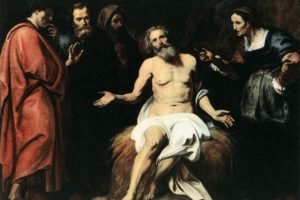As I have shared a couple of times on the Two Cities, I have been reading Calvin’s Institutes this past school year and I finally finished. While I am no Calvin expert I am a huge fan of his work, so in addition to reading the Institutes this past school year I also frequently referenced Calvin’s commentaries in writing various papers. One of my favorite topics in theology and one that I enjoy tracking in Calvin is the people of God.
In my theological upbringing the way I have had the topics of the people of God, Dispensationalism, and Covenant Theology was typically less than helpful. Usually the explanation I got was that Classic Dispensationalism saw total and utter distinction between Israel and the Church, but ran into issues such as temple and interpreting various New Testament passages. Then Covenant Theology although prominent in Church History saw the Church as replacing Israel (according to those who have explained it to me) and no hope for a future of Israel. But alas there was the glimmering hope and the silver lining of this muddy mess- Progressive Dispensationalism, a perfect solution between the two options.
However I always saw the critique of equating Covenant Theology to replacement theology as a red herring. My opinion of the replacement critique became far more apparent to me while I read through Calvin this year. It has become clear to me that if we are to equate Covenant Theology to replacement theology then Calvin was no Covenant theologian. Take for instance what he says on the promises to the Jews:
Nevertheless, when Paul cast them down from vain confidence in their kindred, he still saw, on the other hand, that the covenant which God had made once for all with the descendants of Abraham could in no way be made void. Consequently, in the eleventh chapter he argues that Abraham’s physical progeny must not be deprived of their dignity. By the virtue of this, he teaches, the Jews are the first and natural heirs of the gospel, except to the extent that by their ungratefulness they were forsaken as unworthy—yet forsaken in such a way that the heavenly blessing had not departed utterly from their nation.1
It seems unlikely to me that if Calvin were a replacement theologian that he would desire the Jews not to be deprived of their dignity and would consider them the natural heirs. That seems highly antithetical to what has been described to me as “replacement theology.” A chief issue surrounding this significant debate is poor rhetoric and a collapsing of categories, and if Calvin cannot be labeled as replacement theologian then who can? While I am sure that somewhere throughout Church history someone has believed that Israel was disobedient and so God replaced Israel with the Church, I don’t think that is indicative of all Covenant theologians.
In my dialogues with Mormons I have found it most helpful to compare my best with their best. I certainly do not want a Latter Day Saint judging Evangelicalism by the standard of Joel Osteen and they likely do not want Warren Jeffs to be their standard for Mormonism. So we must evaluate a doctrine by its best proponents and not straw men. We should not reduce Covenant theologians to replacement theologians, especially when I am quiet sure that none of them would readily accept that label. We must engage these topics with sincerity and integrity. It is always best to hear “straight from the horses mouth” because the way I have had Calvin’s theology explained to me is far more different than Calvin himself explains it. If Calvin cannot be accused of replacement theology, then perhaps it would bode well for the discussion if we at times drop the label.
John Calvin, Institutes of the Christian Religion & 2, ed. John T. McNeill, trans. Ford Lewis Battles, vol. 1, The Library of Christian Classics (Louisville, KY: Westminster John Knox Press, 2011), 1336.





Leave a Reply
Your email is safe with us.